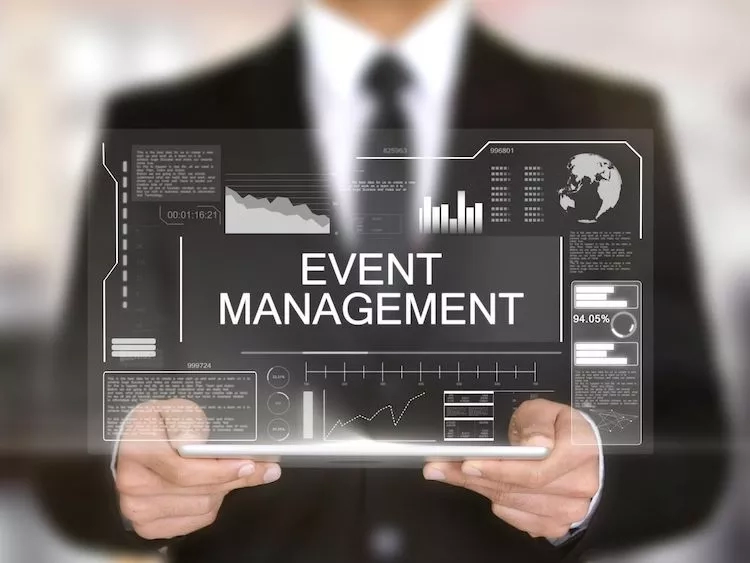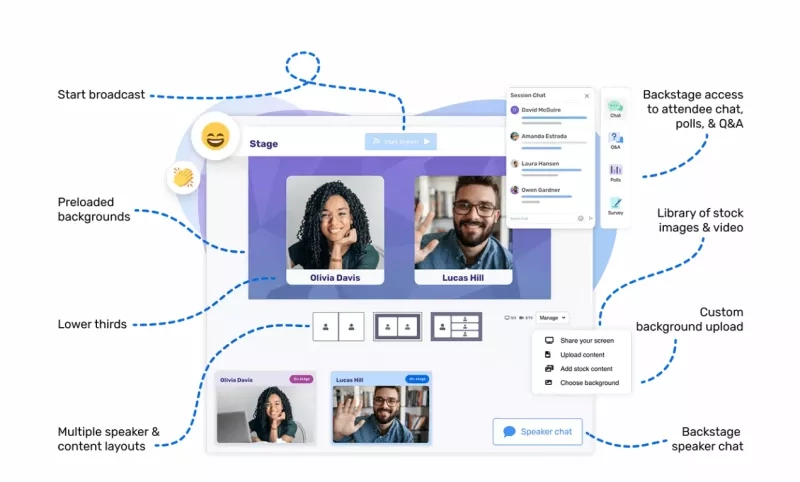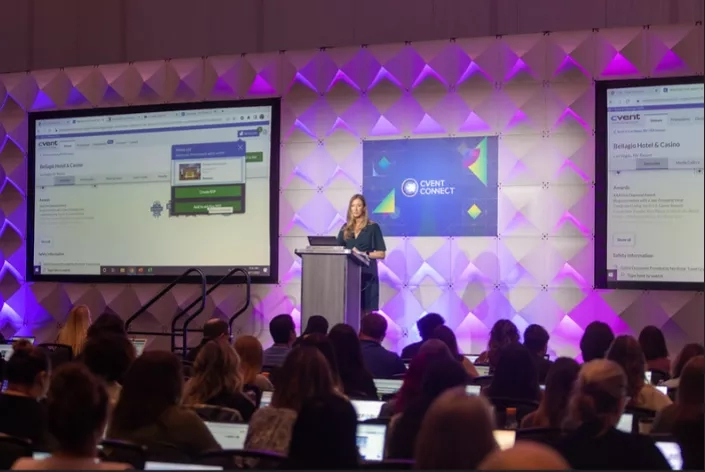
Event management is no easy task. Putting on any great event, regardless of the format, takes a huge amount of planning and preparation.
Whether running an in-person or hybrid conference, a virtual trade show, or even a thought-leadership-led webinar (or anything else!), solid project management is the only way to ensure you can run the best possible event and ultimately achieve maximum results and ROI.
So how do you manage a project as complex as an event?
Best Foot Forward
As with any complex process, preparation is key. Starting out with a project management-led approach is far easier than applying one once you realize, a few weeks in, that planning an event is hard work and needs more than email chains and scrappy notes.
Firstly, you’ll need to understand what the big steps or milestones will be for you to run your event. Consider all the key components needed in three categories – before, during, and after the event:
- Before the event could include venue sourcing, marketing (website updates, online or traditional promotion, advertising, etc.), invites, registration portals, merchandising, and venue dressing.
- During could include all elements needed on the day of your events, such as AV, food and beverage, guest speakers, audience interactive elements, and transportation.
- After might include conference breakdown, post-event analysis, attendee follow-up communications, and more.
You’ll find many different elements to consider, and each one must be well organized in plenty of time before the big event day.
Deadlines, Deadlines, Deadlines
At this stage, consider setting some initial target deadlines for each element. Starting from the date of your event, work backward to each step in the run-up and set an appropriate date. Likewise, set deadlines for your post-event activity too.
Giving yourself a little extra wiggle room is no bad thing. Each of your elements will need its own timeline to put the required work in to achieve what’s needed. Be realistic and consider the level of resources you might need to achieve what you’re planning.
Once you have deadlines in place for each of your event planning milestones, you can then look at assembling your team.
Event Management Team… Assemble!
Start by gathering your project team and clarifying who is responsible for each element. Ensuring up front that everyone is one hundred percent agreed and on board with project delivery ownership is key. It will allow everyone to understand their part in the wider process and how the aspect of the project they are responsible for is important in the bigger picture.
At this stage, you should also offer all involved the opportunity to discuss any concerns with the proposed deadline dates. The people responsible should be able to highlight any potential issues with delivering the plan to ensure there are no nasty surprises along the way.
Have a Backup
How frustrating is it when your computer crashes and you lose your files and content? Having a backup is the answer here, and just as you should back up your work, you should consider a backup plan for the various elements of your event. If you want real peace of mind, you should consider alternatives you can turn to in case of emergency – for example, a caterer having to pull out, printers letting you down, or a vital team member falling ill.
These are all things that could happen and that you have very little control over, so it’s worth considering what sort of disaster recovery plans you might need as part of your event planning process. It’ll mean you are well prepared to face these challenges, and your entire event doesn’t have to be derailed because of something unexpected.
Practice Makes Perfect
In the run-up to your event, you’re going to be busy. Of course, there’s the pre-event promotion and plans to consider. In addition to that, anything for during or after the event will also need to be arranged and scheduled long before the day itself.
Ensure they've been practiced adequately for any event, including presentations or speaking slots. For in-person and hybrid events, this includes “dress rehearsals.” Practice will allow presenters and speakers to best refine their delivery and present their message. Most events will have strict timings to adhere to, and rehearsing will allow people to understand where things may otherwise be overrun, or additional material could be added.
For webinars and virtual and hybrid events, ensure you’ve tested the AV equipment used on the day to ensure things will run smoothly. For example, if running a webinar with multiple presenters in different locations, run a dummy version on the laptops and technology you’re planning for the day with those manning the technology. The last thing you want to happen is to check all the tech in a different location or on a different machine, only to find that minutes before starting the day itself, one of your key presenters needs to apply updates to their laptop. Don’t leave these things to chance.
Endings-Beginnings
The event itself should not be considered the end of the project. As we’ve mentioned earlier, post-event activity needs careful consideration. If you’ve planned and executed your event well, your attendees will be left with a positive feeling toward your brand. While the event is fresh in their mind, it’s the perfect time to follow up with leave-behinds or additional related content, invite them to other upcoming events, ask them to subscribe to your updates, and more. With a well-planned post-event strategy, you can reap additional ROI from your audience long after the event day itself.
Additionally, understanding what has and hasn’t worked as well as it might have done is imperative to fine-tune your approach to events in the future. Taking the time to analyze this internally and communicate with your attendees to ask for feedback soon after the event is the best way to ensure you get accurate, honest feedback that can then be used to improve your event strategy moving forward.
Take the Tech Advantage
Take the opportunity to use technology to help you make the entire event management process more straightforward.
Cvent’s own event management solution provides a seamless experience for any type of event across in-person, hybrid, virtual, or webinar applications. It features tools for each journey stage, from planning to promotion, engagement to follow-up.
Using a single solution across your entire event project cycle and entire event ecosystem, you can rest assured that everything your event team is working on is housed in one easy-to-access place. From requests, approvals, and budget up front, to registration portals and marketing throughout your promotion stage, to engaging mobile apps and onsite solutions to use on the day, and to CRM integration, feedback mechanisms, and engagement scoring to understand from a data perspective of how the event went, Cvent has it covered.
You can also benefit from a single view of each of your attendees. This allows you to provide a tailored approach that feels unique to each invitee as you draw on data from multiple touchpoints and deliver bespoke, targeted communications that speak to their specific pain points and challenges.
Personalization is a huge part of modern marketing, and being able to provide truly bespoke experiences (not just a “Dear [FIRSTNAME]” email) will provide an enhanced user journey and better engagement from your audience.
Conclusion
As we said up top, event management is no easy task. But if you take a measured, considered approach and combine this with a powerful technology solution designed by event experts, you can certainly mitigate many challenges.









